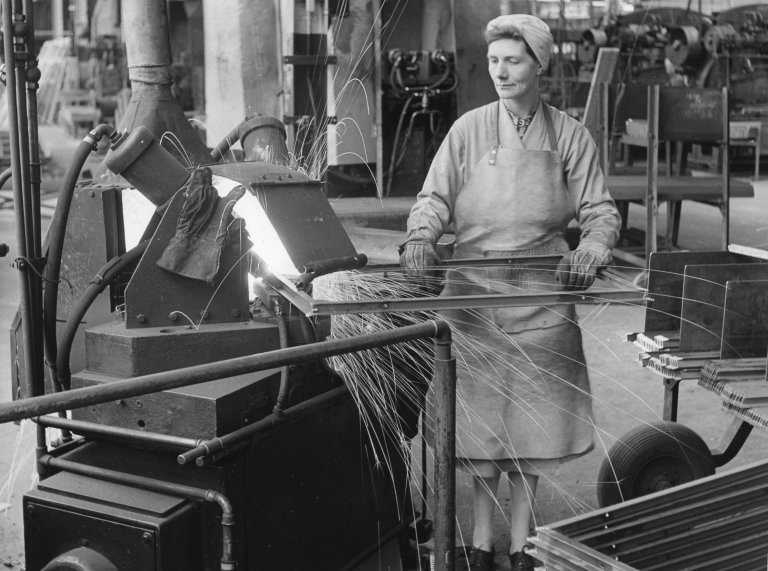RIBA Collections research guide: Women in architecture
Architecture has historically been a male-dominated profession, but women have also played a major role in commissioning and designing buildings.
Often their contributions have been overlooked, for example, because they were excluded from formal training routes into architecture, or because projects they worked on were attributed solely to male colleagues. The profession’s underrepresentation of women from more diverse backgrounds is particularly pronounced. In addition to sexism, many faced other forms of discrimination too, such as racism and ableism.
This guide signposts just some of the material relating to the hundreds of women represented in our library and collections, focusing on those who were among the first to enter the profession in the UK, as well as historic networks and campaigns that aimed to redress the underrepresentation of women architects. At the end of this guide, you’ll find more resources from present-day campaign groups, as well as contemporary scholarship available in our library. A growing number of our collections materials are digitised, so we've included links to those you can find online.
Find out more about the RIBA Collections and how you can access them, in-person and online.
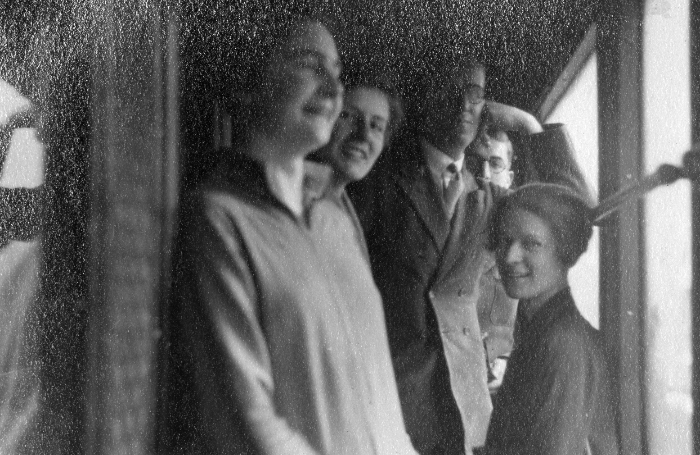
Early entries
Elizabeth Hardwick (1527-1608), known as Bess of Hardwick, was a high-ranking member of the English gentry. She is most well known for the ambitious building projects she commissioned at Chatsworth House and Hardwick Hall, both in Derbyshire. Her patronage led to innovations at Hardwick including an unusual two storey Great Hall that ran the full length of the house.
Elizabeth Wilbraham (née Mytton, 1632-1705) was also an English aristocrat, linked with Wotton House, Buckinghamshire; Weston Park, Staffordshire; Easton Neston, Northamptonshire and Woodhey Hall, Cheshire. Some have claimed that she was the architect behind some of these buildings (and others), although this is disputed. She was certainly a significant patron, with a substantial interest in architecture. She owned a copy of Andrea Palladio’s I Quatro Libri, which she heavily annotated with references to her own building projects.
Cousins Rhoda (1841-1882) and Agnes Garrett (1845-1935) established the first interior design company run by women in Britain. Rhoda Garrett originally aspired to become an architect but struggled to find a practice willing to hire a woman when she moved to London in 1868. The Garretts were later apprenticed to the office of architect John McKean Brydon. The RIBA did not admit women members until 1898, so the Garretts may have focused on interior design because, as a less regulated profession, it was more open to women.
Within the RIBA Collections are:
- Bess of Hardwick: photographs of Hardwick Hall, and a plan drawing by its architect, Robert Smythson
- Elizabeth Wilbraham: a biographical file containing newspaper clippings and correspondence relating to the theory of Wilbraham as the first woman architect; a design model and photographs of Easton Neston; photographs of Weston Park, 1965 to 2000
- Rhoda Garrett: a biographical file containing her obituary in Builder
Further reading (available in the RIBA Library unless marked*):
- Bess of Hardwick: David Bostick, ‘Plaster to Puzzle Over’, Country Life vol. 184, no. 28 (1990) and ‘Plaster Puzzle Decoded’, Country Life vol. 184, no. 30 (1990); David N. Durant, Bess of Hardwick: Portrait of an Elizabethan Dynast (London: Weidenfeld and Nicolson, 1977); Lisa Hopkins (ed.), Bess of Hardwick: New Perspectives (Manchester University Press, 2019)*; Susie West, ‘Hardwick Old Hall’, Country Life vol. 202, no. 13 (2008)
- Elizabeth Wilbraham: Clive Aslet, ‘Orthodox, Learned, Discreet and Pious: restoration of Woodhey Chapel, Cheshire’, Country Life vol. 173 no. 4464 (1983); John Harris, ‘William Taylor: Further Attributions?’ Georgian Group Journal vol. 8 (1998); Richard Hewlings, ‘The Architect of Weston Park’, Georgian Group Journal vol. 20 (2012); Historic England, National Heritage List for England: Weston Hall, Easton Neston, Woodhey Chapel, Wotton House*; Kemp, C., ‘Weston Park, Staffordshire’, House & Garden (June 1969); Anne Laurence, ‘Women Using Buildings in Seventeenth-Century England: a question of sources?’, Transactions of the Royal Historical Society vol. 13 (2003)
- Rhoda and Agnes Garrett: Elizabeth Crawford, Enterprising Women: The Garretts and Their Circle, (London: Francis Boutle, 2002); Elizabeth Crawford, ‘Agnes & Rhoda Garrett, House Decorators’, Victorian no. 11 (2002); Lisa Daniels, ‘Houses as they might be: Rediscovering Rhoda and Agnes Garrett and their Influence on the Victorian Middle-Class Home’, Decorative Arts Society Journal vol. 35 (2011); Rhoda and Agnes Garrett, Suggestions for House Decoration in Painting, Woodwork and Furniture (London: Macmillan, 1876); Miranda Garrett, Professional Women Interior Decorators in Britain, 1871-1899 (PhD thesis, University of the Arts London, 2018)*
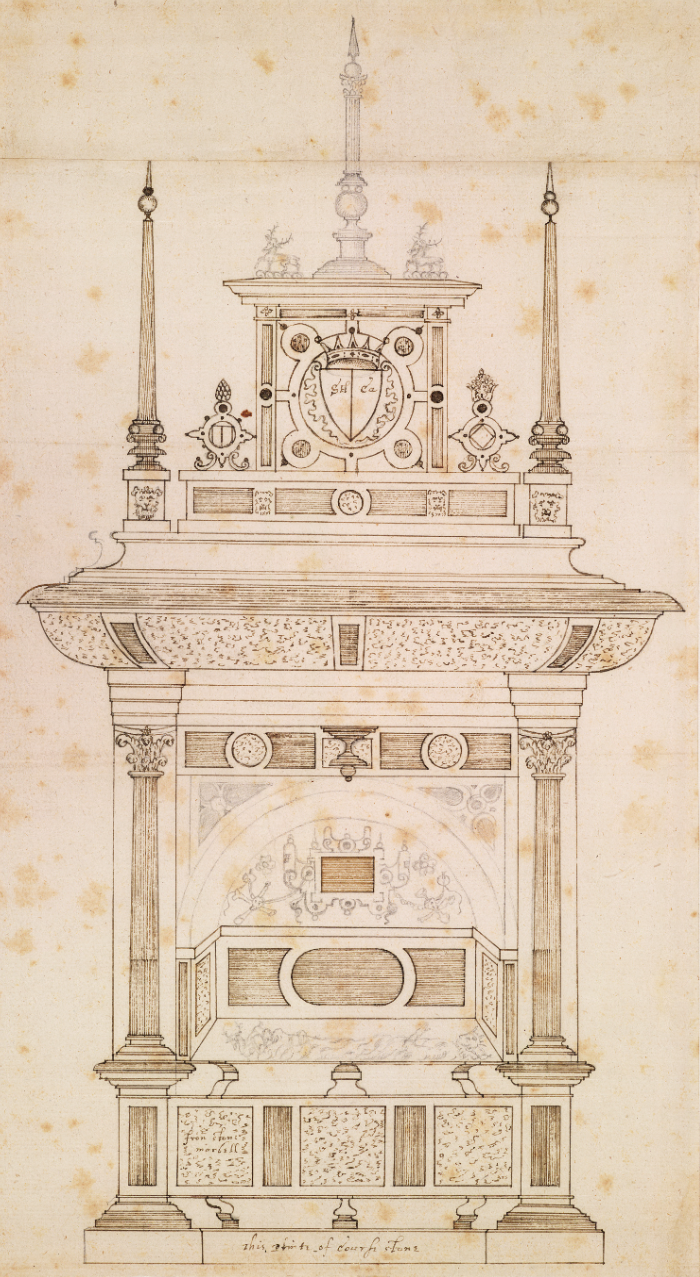
Pioneer professionals
Sisters Ethel (1871-1962) and Bessie Charles (1869-1932) were the first women to study architecture at University College London, when they entered the Bartlett in 1892 after being refused entry to the Architectural Association (which did not admit women until 1917). Ethel went on to become the RIBA’s first female member in 1898, with Bessie following as the second female member in 1900.
Not strictly accurately, Violet Shewell Morris (1878-1958) was proclaimed the “first woman architect” by poet John Betjeman at an event in the 1950s. She worked alongside her father and brother in the family architecture firm, Morris of Reading, and continued independently after their deaths. Her projects included private houses in Bridgwater and Wokingham.
Irish designer Eileen Gray (1878-1976) was among the first women admitted to study at the Slade School of Fine Art, going on to be an influential force in architecture's turn towards Modernism. Her projects included widely-acclaimed private houses in France and the 'Centre des Vacances' project shown at the 1937 Paris International Exhibition.
Among the first female students at the Architectural Association was Elisabeth Scott (1898-1972), who graduated in 1924. Her practice, Scott Chesterton & Shepherd, designed the Shakespeare Memorial Theatre in Stratford-upon-Avon, after winning the design competition. The theatre is considered the first significant public building in England to have been designed by a woman.
Sri Lankan architect Minnette de Silva (1918-1998) was the first Asian woman to become a RIBA Associate, when she joined in 1948 after sitting exams at the Architectural Association. She designed a significant number of residential projects in Sri Lanka, as well as colleges and civic buildings.
Several 20th century women architects were part of husband and wife partnerships that ushered in British modernism. Sadie Speight (1906-1992) worked alongside Leslie Martin, Jane Drew (1911-1996) was in partnership with Maxwell Fry, and Mary Medd (née Crowley, 1907-2005) worked with David Leslie Medd. She was also the first architect to be employed by Hertfordshire County Council.
Housing expert and consultant Elizabeth Denby (1894-1965) was the first women to address a sessional meeting of the RIBA when she gave a paper titled ‘Rehousing from the Slum Dweller’s Point of View’ in 1936.
Within the RIBA Collections are:
- Ethel and Bessie Charles: RIBA membership nomination papers for Ethel and Bessie Charles; drawings and sketches by Ethel Charles, including designs for houses in Cornwall and London, and sketches from travels to Rome and France; an essay by Ethel Charles titled ‘the development of architectural art from structural requirements and nature of materials', awarded the 1904 RIBA Silver Medal
- Violet Shewell Morris: Drawings by the Morris of Reading firm; correspondence from John Betjeman discussing Violet Morris’ work
- Eileen Gray: Design models and drawings for private houses including 'Maison Cylindriques', a one-room flat in Paris, and a house for two sculptors; drawings for a cultural and social centre and centre de vacances; photographs of her work including the furniture she designed; photograph of the retrospective exhibition of her work organised by RIBA in 1973
- Elisabeth Scott: Letter from the RIBA Women Members Committee congratulating Scott on the opening of Shakespeare Memorial Theatre, with reply from Scott; photographs of the Shakespeare Memorial Theatre; a letter by Hope Bagenal containing an account of a visit to Shakespeare Memorial Theatre, accompanied by Scott
- Minnette de Silva: a painted portrait of de Silva by Feliks Topolski and a photographic portrait
- Sadie Speight: extensive archive of work by Speight alongside Leslie Martin; correspondence between Speight and Nikolaus Pevsner regarding her work for the Design Review supplement to the wartime Architectural Review, 1944-1946; correspondence with F.R.S Yorke; a report by Speight, as holder of the Neale Bursary for 1934, entitled `Isabeline architecture in Spain, 1474-1504'; many photographs of projects by Speight
- Jane Drew: extensive material on Fry & Drew’s work and life, covering drawings, manuscripts and photographs; audio recordings of Drew at various interviews and events, including a digitised 1986 talk ‘Pioneers: Women Architects and Their Work’; photographs of Drew and her work
- Mary Medd: manuscripts, photographs and drawings relating to Medd’s work, including with Erno Goldfinger and for the Hertfordshire Architects Department; model of Delf Middle School, Bradford
- Elizabeth Denby: sketches for a school camp in Glamorgan that Denby worked on with Wells Coates; correspondence between Denby and Erno Goldfinger; papers relating to Denby’s work with Samuel & Harding including the 'All Europe House’ at the 1939 Ideal Home Exhibition; photographs of projects Denby worked on
Further reading (available in the RIBA Library unless marked*):
- Ethel and Bessie Charles: The Barlett, ‘Ethel & Bessie Charles’, The Bartlett History Project (March 2014)*; RIBA, ‘The Admission of Lady Associates’, RIBA Journal vol. 6 no. 78 (1898); Lynne Walker, ‘Golden Age or False Dawn? Women Architects in the Early 20th Century’*
- Violet Shewell Morris: H. Godwin Arnold and Sidney M. Gold, ‘Morris of Reading: A Family of Architects 1836-1958', Ancient Monuments Society Transactions vol. 33 (1989); Godwin Arnold, H., ‘Joseph Morris and the Pearl Building, Reading’, Ancient Monuments Society Transactions vol. 28 (1984)
- Eileen Gray: Peter Adam, 'Eileen Gray: her life and work' (London: Thames & Hudson, 2009); Cloé Pitiot, 'Eileen Gray: une architecture de l'intime' (Roquebrune-Cap-Martin: Cap Moderne, 2017); Jasmine Rault, 'Eileen Gray and the Design of Sapphic Modernity: staying in' (Farnham: Ashgate, 2011)
- Elisabeth Scott: Eleanor Mills, ‘Great Scott’, Museums Journal vol. 119, no. 3 (2019); Gavin Stamp, ‘Architecture: 'An Absolute Necessity', Apollo vol. 186, no. 659 (2017)
- Minnette de Silva: Chana Daswatte, ‘Sri Lanka style: tropical design and architecture’ (Singapore: Periplus, 2006); Ashley De Vos, ‘Experiments in Modern Architecture by Minnette De Silva: in retrospect’, Sri Lanka Architect vol. 102, no. 2 (2000); Ellen Dissanayake, ‘Minnette De Silva: Pioneer of Modern Architecture in Sri Lanka’, Orientations vol. 13 no. 8 (1982); Minnette de Silva, ‘The Life and Work of an Asian Woman Architect’, (Kandy, 1998); Shiromi Pinto, ‘Plastic Emotions’ (London: Influx Press, 2019); Anooradha Iyer Siddiqi, ‘Crafting the Archive: Minnette De Silva, Architecture, and History’, Journal of Architecture vol. 22, no. 8 (2017)
- Sadie Speight: Louise Campbell, ‘Constructivism and contextualism in a modern country house: the design of Brackenfell’, Architectural History vol. 50 (2007); Leslie Martin and Sadie Speight, ‘The Flat Book’ (London: Heinemann, 1939); Jill Seddon, ‘The Architect and the 'Arch-pedant': Sadie Speight, Nikolaus Pevsner and Design Review', Journal of Design History vol. 20, no. 1 (2007)
- Jane Drew: Jane Drew, ‘Village Housing in the Tropics’ (London: Routledge, 2014); Maxwell Fry and Jane Drew, ‘Tropical Architecture in the Dry and Humid Zones’ (London: Batsford, 1964); Maxwell Fry and Jane Drew, ‘Architecture and the Environment’ (London: Allen & Unwin, 1976); Jacopo Galli, ‘Tropical Toolbox: Fry and Drew and the search for an African modernity’ (Siracusa: LetteraVentidue, 2019); Karen Eleanor Parker, ‘Jane Drew: Architect and Practical Idealist’ (RIBA Research Award Report, 1993)
- Mary Medd: Catherine Burke, ‘A Life in Education and Architecture: Mary Beaumont Medd’ (Farnham: Ashgate, 2013); Geraint Franklin, ‘Built-in variety': David and Mary Medd and the child-centred primary school, 1944-80', Architectural History vol. 55 (2012); Mary Medd, ‘A Right to be Children: Designing for the Education of the Under-Fives' (London: RIBA Publications for IAAS, 1976); Paula Lacomba Montes and Alejandro Campos Uribe, ‘From Classrooms to Centres: Mary and David Medd's Contribution to Postwar School Design in Britain’, ARQ vol. 24, no. 3 (2020)
- Elizabeth Denby: Elizabeth Darling, ‘The Star in the Profession She Invented for Herself': a brief biography of Elizabeth Denby, housing consultant’, Planning Perspectives vol. 20, no. 3 (2005); Elizabeth Denby, ‘Europe Rehoused’ (London: Routledge, 2015); Denby, ‘Housing Problems in Britain’, Arkitekt no. 7-8 (1944); Denby, ‘Green and pleasant land: aims and needs in replanning rural England. Part 7: the women’s needs’, Country Life (Nov, 1947)
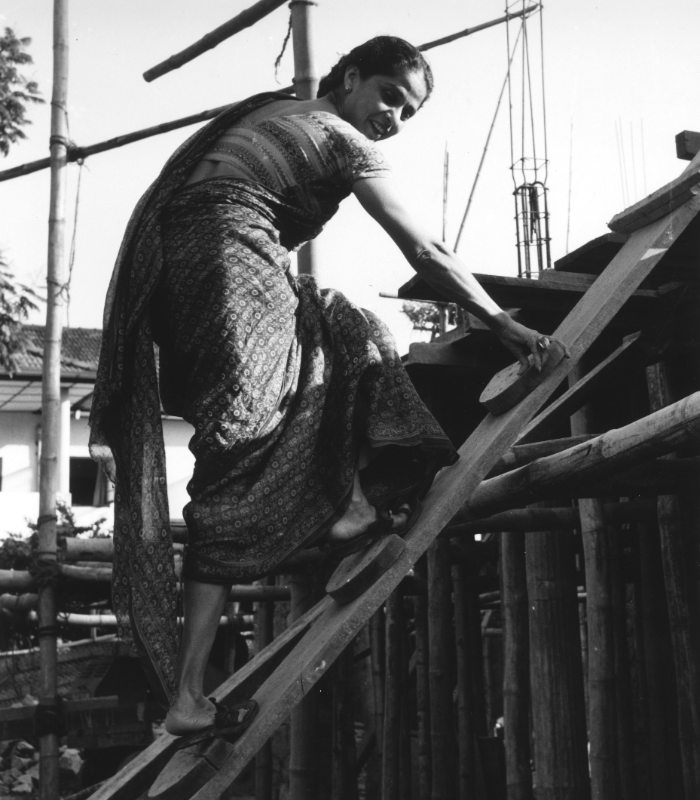
Networks and campaigns
The RIBA Women Architects Committee was established in 1932 by German-British architect Gertrude Leverkus (1898-1976), to represent the views of the growing numbers of chartered women architects.
Matrix Architects Feminist Cooperative was an architectural practice established in the 1980s, which campaigned on issues of gender in the built environment. In the 1990s they ran a survey of registered women architects in the UK and collected examples of their work.
Within the RIBA Collections are:
- RIBA Women Architects Committee: Two archive boxes containing correspondence between RIBA Honorary Secretaries and members of the Women Members Committee, and copies of the committee’s minutes, 1931-1942; a biographical file on Gertrude Leverkus
- Matrix: Three boxes of papers from the Matrix survey, including photographs of projects submitted by respondents; a 2003 report by Matrix co-founder Ann De-Craft Johnson with Sandra Manley and Clara Greed, titled ‘Why Do Women Leave Architecture?’; photographs of Jagonari Women’s Centre and Jumoke Training Nursery, London, designed by Matrix
Further reading (available in the RIBA Library unless indicated*):
- RIBA Women Architects Committee: ‘Changing attitudes: new working practices’ (report of a one-day seminar organised by the Women Architects Committee of the RIBA, 1995); ‘Women Architects’ (report prepared by a steering committee appointed by the Women Architects Committee, 1993); ‘Women in Architecture Survey 1992' (York: Institute of Advanced Architectural Studies, 1992); ‘RIBA Reports on Sexism’, Building Design
no. 1131 (July 1993) - Matrix: Jos Boys, ‘Shape of Work to Come: the Matrix group's feminist approach to architecture’, Building Design no. 500 (June 1980); Matrix and the GLC Womens Committee, ‘Building for Childcare: Making Better Buildings for the Under-5s', (London: Matrix, 1986); Matrix, ‘Making Space: Women and the Man-Made Environment’ (London: Pluto, 1985); Ruth Owens, ‘Child Care Challenge’, Architects Journal vol. 190, no. 16 (1989); Mark Swenarton, ‘Guiding Lights’, Building Design no. 940 (1989); Matrix Feminist Architecture Archive*
Related roles
As well as women architects and designers, hundreds of other women appear in our collections. In particular our photographs collections, such as the Architectural Press Archive, offer a broad social history record including depictions of women in a wide range of roles such as clients, residents, factory workers, office staff, construction labourers, portrait subjects and medical professionals, to name just a few.
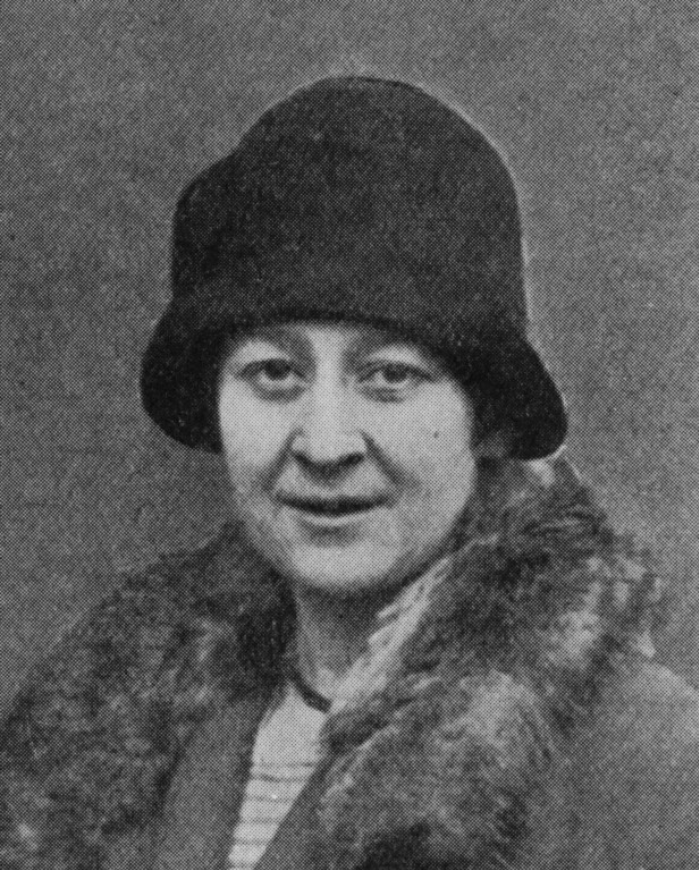
More resources (available in the RIBA Library unless indicated*)
One easy way to find relevant books in our library is to look for the classmark 721.011.2-055, which covers architecture, sex and gender. You'll find this at the far end of the library, on the left-hand side. If you need help, you can always ask our library staff.
- AA XX 100*
- Black Females in Architecture*
- FAME Collective*
- Part W*
- 'She Builds' Podcast*
- Women in Architecture*
- Women’s History Network*
- Jan Cigliano Hartman, ‘The Women Who Changed Architecture’ (New York: Princeton Architectural Press, 2022)
- Elizabeth Darling, ‘Women with Attitude’, Architectural Review vol. 243, no. 1449 (2018)
- Carole Despres et al, ‘Special Issue: Women's Voices in Architecture and Planning’, Journal of Architectural & Planning Research vol. 9, no. 2 (1992)
- Elizabeth Darling, ‘Women and the Making of Built Space in England, 1870-1950', (Aldershot: Ashgate, 2017)
- Elizabeth Darling and Nathaniel Robert Walker (ed.), ‘Suffragette City: Women, Politics, and the Built Environment’ (London: Routledge, 2020)
- Tumpa Husna Yasmin Fellows, 'Exposing the Barriers in Architecture from a FAME (Female Architects of Minority Ethnic) Perspective' (RIBA Research Award Fund recipient, 2020)
- Jane Hall, ‘Breaking Ground: Architecture By Women’ (London: Phaidon, 2019)
- Ike Ijeh, ‘On a Role’, Building vol. 284 no. 9011, (2018)
- Clare Lorenz, ‘Women in Architecture: A Contemporary Perspective’ (London: Trefoil, 1990)
- Elizabeth Otto and Patrick Rössler, ‘Bauhaus Women: A Global Perspective’ (London: Herbert Press, 2019)
- Mary Pepchinski and Mariann Simon (ed.), ‘Ideological Equals: Women Architects in Socialist Europe 1945-1959' (London: Routledge, 2017)
- Toshiro Sato et al, ‘Special Issue: Women in American Architecture’ SD no. 309 (6) (1990)
- Jill Seddon and Suzette Worden (ed.), ‘Women Designing: Redefining Design in Britain Between the Wars (Brighton: University of Brighton, 1994)
- Denise Scott Brown, ‘Architecture: A Place for Women’, Architectural Design vol. 60, no. 1,2 (1990)
- Libby Sellers, ‘Women Design’ (London: Frances Lincoln, 2017)
- Sumita Singha (ed.), ‘Women in Architecture: Critical Concepts in Architecture’ (London: Routledge, 2019)
- Despina Stratigakos, ‘Where Are The Women Architects?’ (New York: Princeton University Press, 2016)
- Christopher Sykes, ‘The House that Wendy Built’,
- Liz Walder, ‘Going for Gold: looking at the gender imbalance of recipients of major architectural awards and prizes’ (Cardiff: Wordcatcher Publishing, 2019)
- Joanna Watt, ‘Where Credit’s Due’, Perspectives on Architecture no. 29 (1997)
- Austin Williams ‘New Chinese Architecture: Twenty Women Building the Future’ (London: Thames & Hudson, 2019)
- Mary. N. Woods, ‘Women Architects in India: Histories of Practice in Mumbai and Delhi’ (London: Routledge, 2017)
Find out more about the RIBA Collections.
